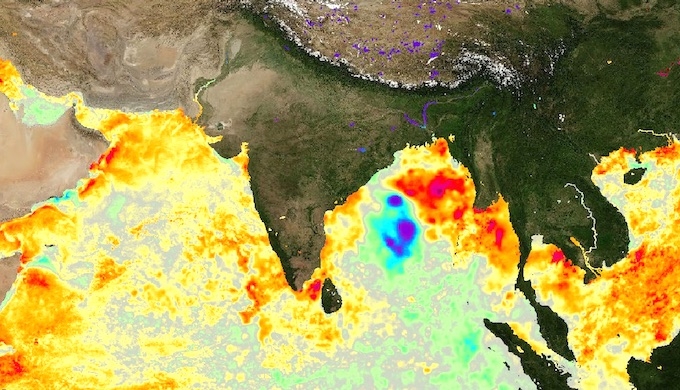Climate Change is directly affecting all 612 districts in India: Ministry of Science and Tech
03 Sep 2021 17:47:41
New Delhi, sept3: As per a hazard assessment research undertaken by IISc, Bangalore, IIT Mandi, and IIT Guwahati with assistance from the Department of Science and Technology, 'Climate Change' is going to have an impact on all 612 districts in India. The most vulnerable districts are 100, notably in the country's east.
 Dr Akhilesh Gupta, Senior Advisor and Head, Policy Coordination & Programme Management (PCPM) Division, and a climate change expert at the Department of Science and Technology (DST) said at the inauguration ceremony of the two-day policy dialogue on ‘Localizing Climate Resilience Agenda: Vision 2050 and 2100' under the CAP-RES DST-GOI Project that 70% of the country's most vulnerable districts are in five Eastern Indian states: Assam, Bihar, Jharkhand, Uttar Pradesh, and Orissa.
Dr Akhilesh Gupta, Senior Advisor and Head, Policy Coordination & Programme Management (PCPM) Division, and a climate change expert at the Department of Science and Technology (DST) said at the inauguration ceremony of the two-day policy dialogue on ‘Localizing Climate Resilience Agenda: Vision 2050 and 2100' under the CAP-RES DST-GOI Project that 70% of the country's most vulnerable districts are in five Eastern Indian states: Assam, Bihar, Jharkhand, Uttar Pradesh, and Orissa.
“Next two decades are going to be very crucial. IPCC‘s working group report gives the starkest of warnings for global climate impacts. The two-degree rise in global temperatures may come earlier than expected. It may have a huge impact on India, especially on agriculture, health and water security. India is confronted with a challenge of addressing such impacts,” he added.
“We will have to do something at the local level, at the municipal level with regional and local approach and also at the panchayat level,” said Prof V K Sharma, Vice Chairman, Sikkim SDMA.
Also read: Govt bans manufacture, sale, use of identified single-use plastic items from next year
This high-level dialogue would identify the climatological set of circumstances and challenges, and even a long-term sense of direction for the integration and synchronisation of Science, Technology, and Policy. It would also fathom financial mechanisms and governing tools for climate resilience, and also foresee the impact of disruptive technology on effective models.

“We will have to do something at the local level, at the municipal level with regional and local approach and also at the panchayat level,” said Prof V K Sharma, Vice Chairman, Sikkim SDMA.
Also read: Govt bans manufacture, sale, use of identified single-use plastic items from next year
This high-level dialogue would identify the climatological set of circumstances and challenges, and even a long-term sense of direction for the integration and synchronisation of Science, Technology, and Policy. It would also fathom financial mechanisms and governing tools for climate resilience, and also foresee the impact of disruptive technology on effective models.